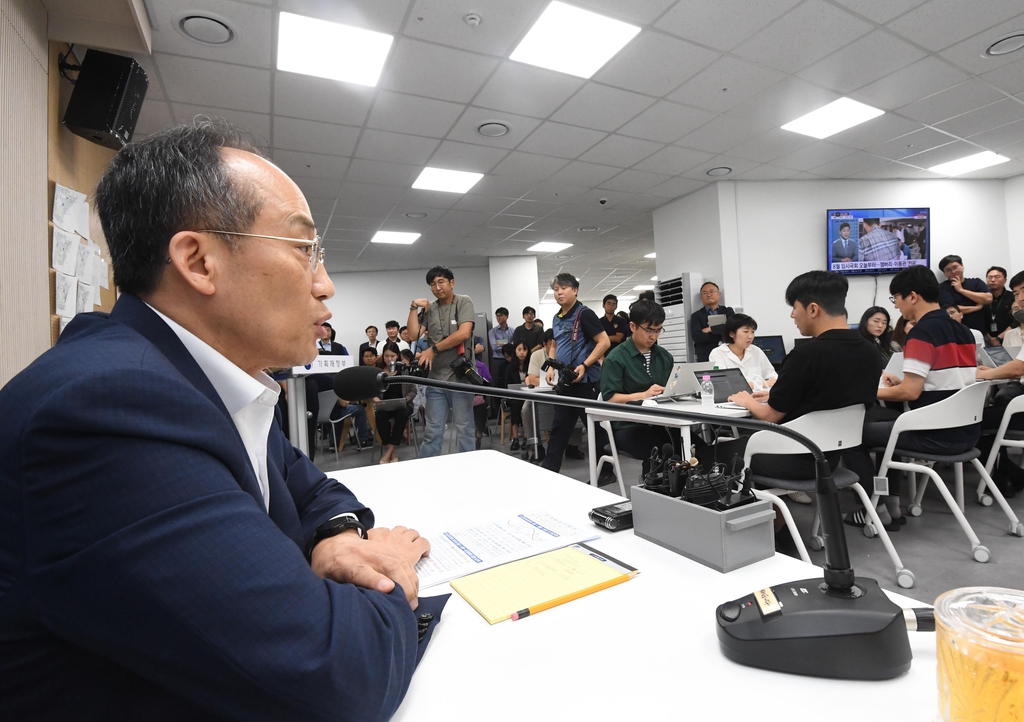- California Assembly OKs highest minimum wage in nation
- S. Korea unveils first graphic cigarette warnings
- US joins with South Korea, Japan in bid to deter North Korea
- LPGA golfer Chun In-gee finally back in action
- S. Korea won’t be top seed in final World Cup qualification round
- US men’s soccer misses 2nd straight Olympics
- US back on track in qualifying with 4-0 win over Guatemala
- High-intensity workout injuries spawn cottage industry
- CDC expands range of Zika mosquitoes into parts of Northeast
- Who knew? ‘The Walking Dead’ is helping families connect
S. Korea to extend fuel tax cut through Oct. amid inflation: Choo
South Korea’s finance minister said Wednesday the country will extend the tax cut on fuel consumption through October in line with efforts to tackle inflation and ease financial burdens on the public.
The government has been applying a 25 percent discount on the consumption of gasoline, and a 37 percent discount on the consumption of diesel, which was set to expire at the end of this month.
“Through the extension, we plan to ease the burden of rising global oil prices on the public,” Finance Minister Choo Kyung-ho said during a meeting with reporters in the central city of Sejong.
“As for the period beyond October, we plan to come up with an additional measure by reviewing the situation then,” Choo added.
Consumer prices, a key gauge of inflation, rose 2.3 percent in July from a year earlier, compared with a 2.7 percent increase in June, according to data from Statistics Korea. It marked the lowest advance since June 2021.
The prices of utility services, however, continued to grow sharply, climbing 21.1 percent over the period, as the state-run Korea Electric Power Corp. raised electricity bills to make up for its snowballing losses. South Korea depends heavily on imports for its energy needs.
The finance minister added a strong U.S. dollar against South Korea’s won is not expected to have a significant impact on the latest trend of a slowdown in consumer prices.
The country is also closely monitoring the latest real estate crisis in China, South Korea’s largest trading partner, and plans to take action if necessary, he added.
“The direct impact of the issue on our financial market and companies is very limited. However, as we maintain close ties with the Chinese economy, it can affect neighboring Asian countries, including South Korea,” Choo said.
Touching on the country’s sluggish exports, Choo said it was notable that outbound shipments have been showing signs of a recovery.
“Normally, exports tend to stay weak in August due to seasonal factors, such as the vacation season. But we anticipate the trade balance to enter on a surplus trend in September, with (exports) posting growth in October,” Choo added.
South Korea’s exports fell for the 10th consecutive month in July due mainly to weak demand for semiconductors, but the country reported a trade surplus for two straight months.












